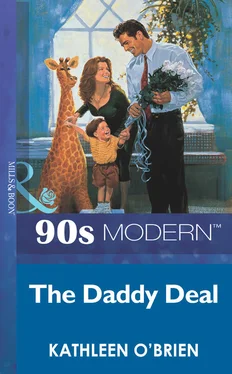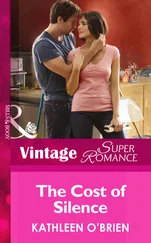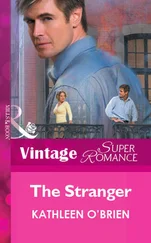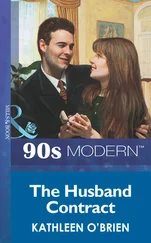Clarke swiveled in his chair. “Jennifer!” he cried in patently feigned surprise. “Look, there’s Jennifer Hanlon!” He stood, excusing himself curtly with a wave of his hand and, with a deliberate discourtesy, pushed his way through the crush of bodies toward a lovely blonde swathed in mink.
At-first, Brooke was too stunned to be angry. Her gaze followed him numbly, watching his slow, self-important progress through the crowd. The dancing was just about to begin, the orchestra already in the pit, tuning up, and the floor was dense with people, all of whom seemed to know Clarke. He stopped every few feet, eager to slap another back, shake another hand.
She tilted her head down, trying to compose herself. What a fool she had been to think that Clarke would help her. He didn’t understand anything. He still thought life was just a power play, where you lived for the chance to one-up your enemies.
He didn’t have any idea how far she had traveled beyond that pinched world of his. He had no idea what it was like to be a parent, to love someone more than you loved yourself. And he didn’t know real grief—didn’t know what it felt like to hear your child crying, begging you to make his pain go away, every syllable falling onto your raw nerves like the lash of a whip, maddening you, making you choke on your own impotent rage and fear, making you offer fate any Faustian bargain you can imagine.
But fate was deaf and didn’t answer.
She drew a deep breath, squeezing her eyes shut. Maybe she should call home. It was only nine, and maybe Justin hadn’t fallen asleep yet. Gretchen let him stay up late, and Brooke couldn’t really blame her for it. When he begged for one more story, it was terribly hard to say no. They were spoiling him, Brooke knew. But he had been through so much....
Yes. She’d call home. She dug blindly through her purse. Hearing Justin’s voice would chase these stupid tears back where they belonged. Justin was her focus. She would just call to say good-night one more time—
“Are you all right?”
At the sound of a strange masculine voice, Brooke looked up guiltily, her hands frozen knuckle-deep in her purse as if she had been caught burrowing through someone else’s wallet instead of her own. To her shock, the man who had battled Clarke over the case of champagne—Clarke had said his name was Taylor, Taylor something, what was his last name?—was standing next to her. Alone. His brunette had vanished.
A stray tear dribbled onto the corner of her mouth, and Brooke felt herself flushing. He was watching her quietly, studying her with the dispassionate curiosity he might have given an intriguing but perplexing painting. She knew what he was thinking. He was probably wondering why she sat here alone downing champagne in the wake of a date who was conspicuously ignoring her. Wondering why she was pale and on the verge of a crying jag. Wondering, perhaps, whether that meant she was an easy mark...
She tried to lick the tear from her lip unobtrusively. Strange. He didn’t look like the kind of man who had to prey on other men’s rejects. In this dim light, some of the details were unclear-eye color, for instance—but he projected the confidence of a man accustomed to finding a welcome wherever he went. Now that he had unfolded himself from the chair, she saw that he was at least six foot two. He wore that tuxedo as if he’d been born in it.
And that smile...
He was holding out a snowy, softly folded handkerchief, smiling at her over his outstretched hand. It was a slow smile, and when it reached his eyes it lit them from within, revealing green sparks that were at once strangely new and amazingly familiar.
“Thank you.” She forced herself to smile back as she accepted the handkerchief. His expression was calmly neutral, but somehow it seemed to impart strength to her. “To tell you the truth, though,” she said, blotting her eyes carefully, then returning the slightly soggy white square with an apologetic grimace, “I was actually digging around in here looking for a quarter.”
He tilted his head, silently speculating, but without a word he extracted a silver coin from his pocket and held it out.
Brooke’s face burned—she must have sounded as if she were panhandling the man—but there was nothing to do but take the quarter. “Thank you,” she said again stiffly, closing her band around it, feeling its hard, cool edges grow warm in her palm.
“The pay phones are in the lobby,” he said conversationally, as if he handed money to crying ladies every day. “But I’m sure one of the ushers will call a taxi for you if you need a ride home.”
“A taxi?” She was momentarily confused, but she followed his gaze across the room and saw that he was looking at Clarke, who was still clutching the blonde, his fingers buried deep in the mink that caressed her shoulders. “Oh...” She shook her head. “No, I just need to call home to check on my son. I’m not leaving.”
“Really?” He raised one brow. “Why not?”
Such unexpected bluntness confused her, and she stared stupidly. for a moment, as if she hadn’t understood him. “Why not?” she echoed hollowly. Oh, God, why had she drunk so many glasses of champagne? She must sound like an idiot. “Well, because Clarke is coming right back. We were in the middle of a rather important discussion, you see, so he’ll have to come right back....”
But even as she spoke, she saw that Clarke was now at the far side of the auditorium, his cellular telephone held self-importantly to his ear, and the blonde still clinging to his arm. He stopped for a moment at the door, saying something to the usher without even lowering the flip phone.
The usher nodded uncertainly, looking uncomfortable, but Clarke spoke sharply to the younger man, who nodded again and began picking his way hurriedly back toward Brooke’s table. She watched his approach helplessly, a dread certainty settling like a weight in her chest.
“Mr. Westover says he regrets he’s been called away,” the usher said when he finally made it across the room. He looked a bit confused himself. “An emergency. He asked me to tell you.”
Brooke nodded. Fury and humiliation warred within her, and the result was a strange, passive paralysis. “Thanks,” she said, as if he had brought her a present. And then, nonsensically, again. “Yes, well. Thank you.”
“Ummm...” The young man shifted from one foot to the other and bit his lip. “Um, the thing is, someone needs to settle Mr. Westover’s bill.”
Brooke slowly turned and stared at the young man blankly. “His bill?” The word had no meaning, really. It was just a collection of sounds. How could Clarke have left her here? If she had imagined a hundred cruel paybacks, she could never have thought of this one. She didn’t know another soul in this room. Struggling single-mom nurses didn’t exactly hobnob with Tampa’s social royalty.
“Well, yes, you see... Mr. Westover bought some champagne at the auction, remember?” He looked pointedly at the glass she held in her trembling hand. “You’re drinking it now. But no one paid for it, you see, and now Mr. Westover seems to have left, and well, I wondered if maybe he had left his credit card with you....”
Brooke whirled, horrified. She set her champagne glass on the table as if it had been poisoned. Seven hundred dollars? Was Clarke insane? Where on earth was she going to get seven hundred dollars? Just five minutes ago she would have considered herself wealthy if she’d been able to dredge up a quarter. She dropped onto the chair, trying to make the suddenly tilting room stand still.
Brooke was hardly a socialite, but even she understood that people who bid at fund-raisers were as honor bound as poker players to make good their debts. She half expected someone to call the manager, to call the police, to tie an apron around her blatantly inferior party dress and send her in to wash the dishes.
Читать дальше












